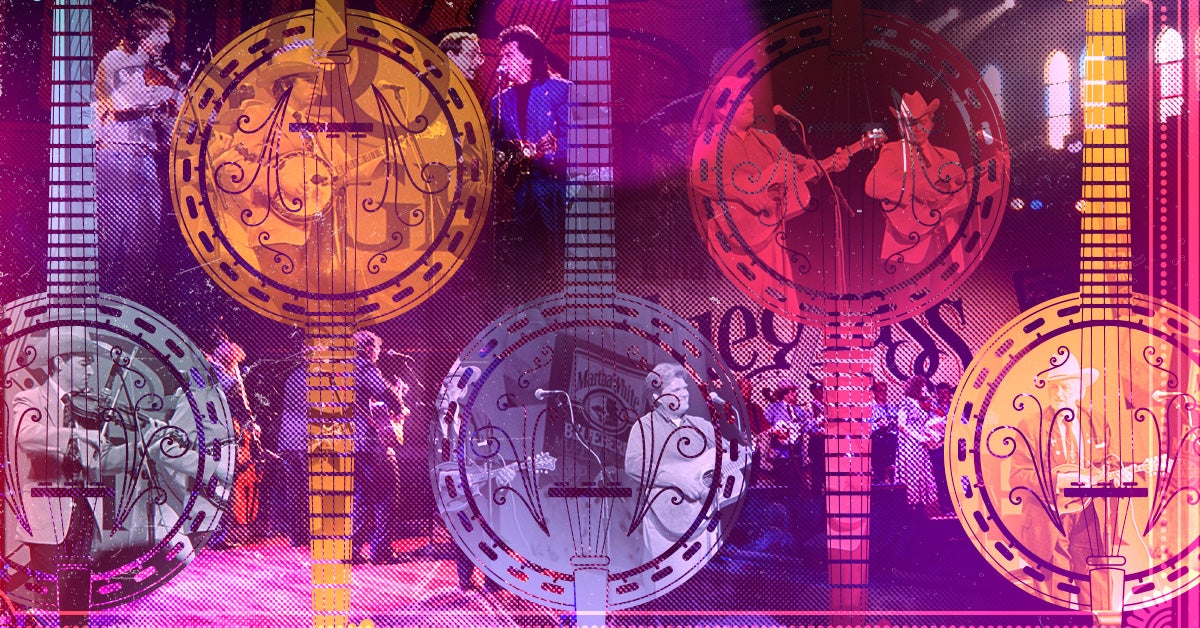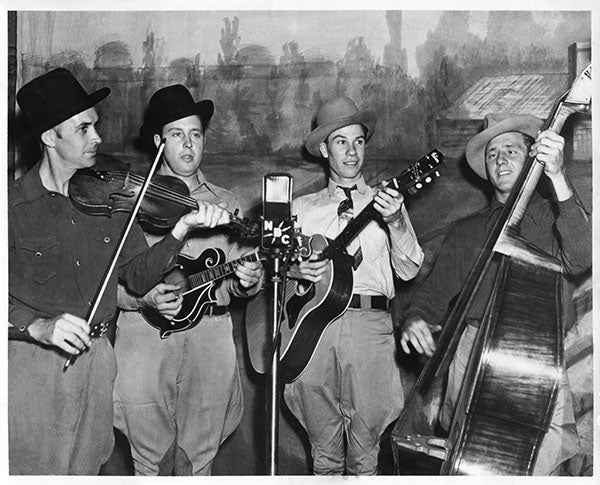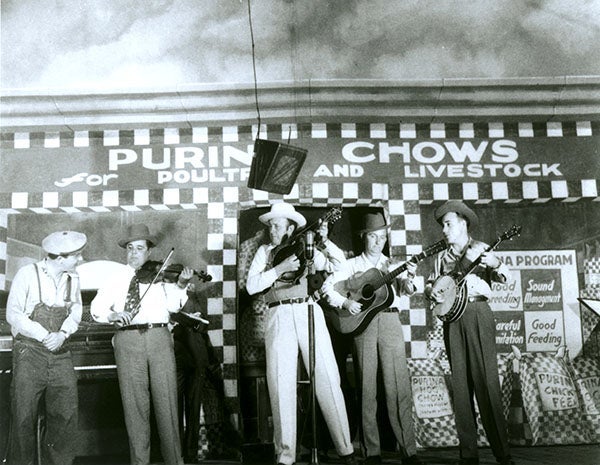
Ryman Auditorium’s Almost 80-Year Love Affair with Bluegrass
By Matthew McCloy, Hannah Grubbs
In December of 1945, a defining moment in American music unfolded on the historic stage of Ryman Auditorium. Here, the distinctive genre of bluegrass was born, marking the beginning of a musical legacy that continues to endure eight decades later. At the heart of the pivotal movement stood one man: Bill Monroe.
Born To Play
With a love for music inspired by his mother and his uncle, fiddler Pendleton Vandiver, Bill Monroe was a dedicated mandolin player by eight years old. Later, Monroe and his brothers, Charlie and Birch, started playing instruments together, inspired by the music they listened to on the phonograph. Together, Monroe played the mandolin, Charlie played guitar, and Birch was on the fiddle.
In the 1930s, with the help of friends William Hardin and Larry Moore, they formed The Monroe Brothers. Eventually, the family act dissolved into a duo with just Charlie and Bill.
Change on the Horizon
After they became a duo, Charlie and Bill headed straight for the Carolinas. They planted themselves at WBT, Charlotte, North Carolina’s 50,000-watt station. In 1936, the producer of RCA, Eli Oberstein, recorded the brothers for the very first time. Following the release of their song, “What Would You Give in Exchange for Your Soul,” they created a nice audience for themselves. The pair split up in 1938, but with the staying power that came to define an entirely new genre of music, Monroe became a solo artist. He formed his trailblazing band, The Bluegrass Boys – its name a nod to his home state of Kentucky.

Becoming an Opry Regular
After gaining experience in North Carolina, Monroe journeyed to Nashville to audition for the Grand Ole Opry in 1939. Fired up by Monroe’s rendition of Jimmie Rodgers’ “Mule Skinner Blues,” Nashville radio station WSM’s George D. Hay, Harry Stone, and David Stone hired him for a regular spot on the Opry. By 1943, Monroe became a household name and was earning around $200,000 a year from the shows. The Opry was still held at Nashville’s War Memorial Auditorium at the time, but when the show moved to Ryman Auditorium in June 1943, changes occurred within Monroe’s own band that would prove significant in cementing bluegrass as a genre.
The Birth of Bluegrass
In December of 1945, Monroe decided to play around with key elements of his band. He swapped fellow Opry star and banjo player David “Stringbean” Akeman for Earl Scruggs. Scruggs brought an innovative three-fingered banjo playing technique to the band, a departure from Akeman’s “clawhammer” technique. Credited with popularizing “Orange Blossom Special,” Chubby Wise, was on the fiddle, while Howard Watts aka "Cedric Rainwater" played bass. The band’s December 1945 Opry performance at the Ryman became the prototype for future bluegrass bands.
What Makes It Bluegrass?
“In a country band, the music is built around the lead singer. Then you have the band back behind it. In a bluegrass band, it’s the band,” Opry member Ricky Skaggs says in Ken Burns’ documentary Country Music. “The fiddle player’s as important as the mandolin player. Don’t tell Mr. Monroe that.”
And that’s coming from someone who, like Monroe, has a proclivity for the mandolin. The Father of Bluegrass, Bill Monroe, picked Skaggs out from a crowd when he was six years old during a show in Martha, Kentucky and was a mentor to him for many years.

The Movement Lives On
While bluegrass is distinctive for its high lonesome sounds and syncopated licks, Monroe’s influence can be found far beyond the confines of the genre. In 1997, Monroe was inducted into the Rock & Roll Hall of Fame leaving an impact that can be traced all the way back to “The King.”
For his Grand Ole Opry debut at the Ryman on October 2, 1954, Elvis Presley reworked one of Monroe’s greatest songs, “Blue Moon of Kentucky.” A dedicated fan, Presley even included the song on the B-side of his debut album. Carl Perkins even claimed that the first words Elvis said to him were, “Do you like Bill Monroe?”
This year, we are celebrating 80 years since the birth of bluegrass on the Ryman stage. Over two decades after his passing and almost 80 years after inventing the genre during an Opry show, Monroe’s legacy still lives on.
If you want to experience the best bluegrass music at its birthplace, get tickets for the beloved Springer Mountain Farms Bluegrass Nights at the Ryman.





